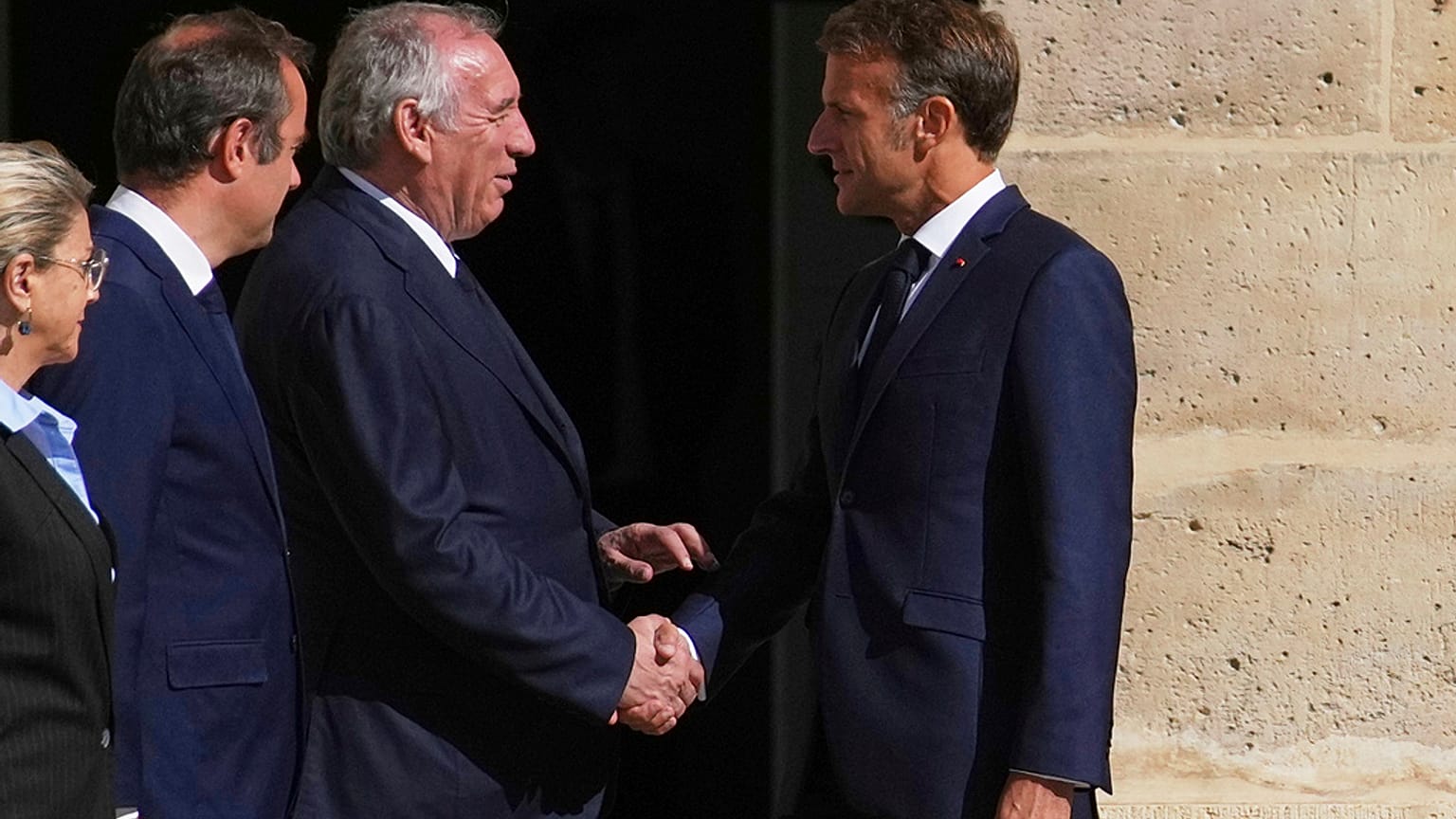Top Stories
Macron Faces Crisis: New PM Needed After Bayrou’s Downfall

UPDATE: France is plunged into political chaos as Prime Minister François Bayrou faces a devastating downfall following a crushing confidence vote. The National Assembly voted against him 364–194, forcing President Emmanuel Macron to urgently seek a new leader for the country.
Just announced, Macron’s office confirmed that he will accept Bayrou’s resignation on Tuesday, October 10, 2023, and appoint a replacement “in the coming days.” Bayrou, who had only been in office for less than a year, had gambled his future on significant spending cuts to tackle France’s soaring debt, but both leftist and far-right lawmakers seized the opportunity to oust him.
This latest political upheaval comes as France grapples with a fractured parliament and growing economic concerns. Macron now faces a critical decision: appoint a new prime minister capable of navigating this divided landscape or dissolve the National Assembly and call for snap elections. While he has so far resisted the latter, increasing gridlock may leave him with no option.
If Macron opts for new elections, they must be held within 20 to 40 days of dissolution, following constitutional mandates. Traditionally, the president would appoint a prime minister from the party with the most seats. However, Macron is not bound by this, and should a party secure an outright majority, the president would likely have to name its leader. This scenario, known as ‘cohabitation,’ has historical precedence, such as in 1993 when Socialist President François Mitterrand appointed Conservative PM Édouard Balladur following a right-wing landslide.
Speculation is rampant over potential successors to Bayrou. Candidates will face the daunting task of steering a budget through a splintered assembly where no party holds a majority. Macron has pledged to remain in office until his mandate concludes in 2027, but the risk of further political paralysis looms large as France’s economy struggles under the weight of its public debt, which stands at over €3.3 trillion or 114% of GDP, the third highest in the eurozone after Greece and Italy.
In a stark warning to parliament, Bayrou described France as being on “life support” and addicted to spending. The country’s deficit reached 5.8% of GDP in 2023, nearly double the EU’s 3% ceiling, and is expected to hit 5.4% this year. Bayrou’s plan aimed to slash €44 billion in spending by 2026, including cutting two public holidays, but opponents labeled the measures as socially unjust.
What happens next is crucial for both Macron and the future of France’s governance. As the political landscape shifts, the nation watches closely to see how Macron will navigate this significant crisis.
Stay tuned for updates as this story develops.
-

 Entertainment1 month ago
Entertainment1 month agoAimee Osbourne Joins Family for Emotional Tribute to Ozzy
-

 Politics1 month ago
Politics1 month agoDanny Healy-Rae Considers Complaint After Altercation with Garda
-

 Top Stories4 weeks ago
Top Stories4 weeks agoIreland Enjoys Summer Heat as Hurricane Erin Approaches Atlantic
-

 World2 months ago
World2 months agoHawaii Commemorates 80 Years Since Hiroshima Bombing with Ceremony
-

 Top Stories2 months ago
Top Stories2 months agoFianna Fáil TDs Urgently Consider Maire Geoghegan-Quinn for Presidency
-

 World2 months ago
World2 months agoGaza Aid Distribution Tragedy: 20 Killed Amid Ongoing Violence
-

 World2 months ago
World2 months agoCouple Convicted of Murdering Two-Year-Old Grandson in Wales
-

 World2 months ago
World2 months agoAristocrat Constance Marten and Partner Convicted of Infant Murder
-

 Top Stories2 months ago
Top Stories2 months agoClashes Erupt Between Far-Right Groups and Migrants in Spain
-

 Top Stories2 months ago
Top Stories2 months agoHistoric Dalkey Pub The Queens Reopens Under New Management
-

 World2 months ago
World2 months agoTrump Defends FBI Deputy Director Amid Epstein Files Controversy
-

 Politics2 months ago
Politics2 months agoTragic Crowd Surge at Gaza Aid Center Claims 20 Lives









